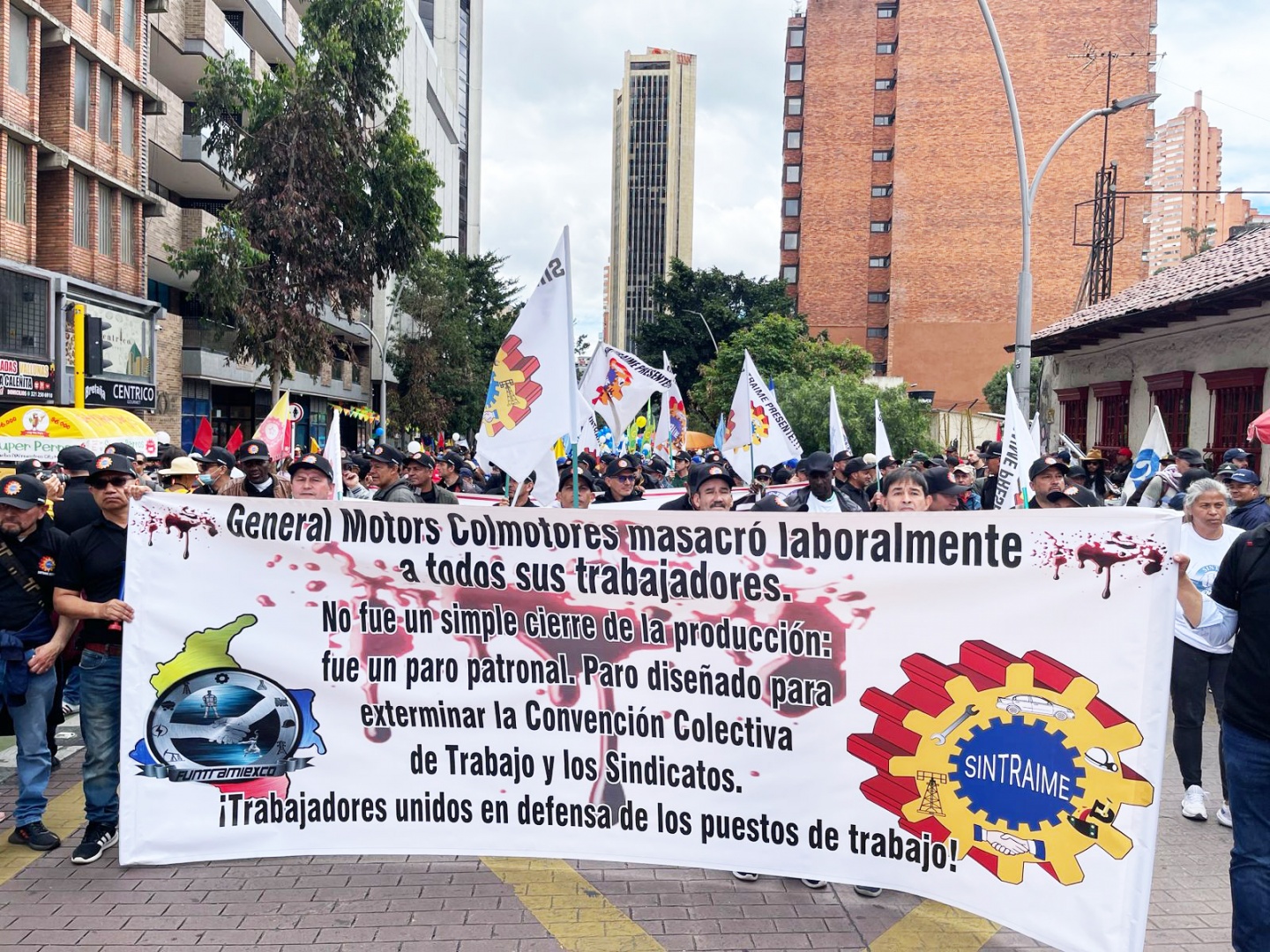22 May, 2024General Motors (GM) is closing plants in Colombia and Ecuador in a move to drive the industry towards an emissions-free future. Workers are demanding job stability during the transition and calling for re-skilling.
On 26 April 2024, GM announced that it was unilaterally shutting down its manufacturing and assembly plants in order to shift its operations in Colombia and Ecuador to sales and after-sales services. Manufacturing operations stopped immediately at the Colmotores plant in Colombia and will be halted in late August at the OBB plant in Ecuador.
According to Juan Romero, a GM Colombia worker and union member, 20 workers were summoned to a "mandatory business meeting" where they were told the news by video and offered an individual, non-negotiable resignation agreement. They were given the choice of either signing the agreement or being part of the collective layoffs.
The union urged them not to sign and met with the Ministry of Labour, which sent an inspection team to GM to verify whether operations had ceased and requested that the unions be allowed to enter the plant. However, GM refused to allow this.
The Ministry issued a statement indicating that the company’s treatment of its workers was hostile and that the shutdown was unilateral and abrupt. It also adopted precautionary measures preventing GM from initiating administrative proceedings to wind up its companies and ordering it to maintain labour relations with the workers, even those who had already signed resignation agreements. However, the company failed to comply with the order and sent telegrams to the workers who had signed resignation agreements, informing them that they would not be paid for two weeks’ work.
The company states in writing that it will support workers in both countries during the transition and that it has developed an employment termination plan and a solid and comprehensive labour relocation programme. However, Romero says that workers have not been involved in developing the plan and have not received any job relocation proposals.
"GM did not develop a termination plan or warn us about it. The shutdown was abrupt, hostile, crude and harsh. The workers who signed the resignation agreement were merely offered interview advice and included in a job pool. They have not been transferred to other positions.
“We want a just transition – we have skills and we are ready. We told the government that we are prepared to retrain and work within GM's new business model or in another company. Unfortunately, we believe that GM plans to close down the plant, lay off the workers and end the collective bargaining agreement; then in two or three years, it will reopen the plant and take on new workers at the minimum wage, with no union and no collective bargaining agreement."
Edwin Vedolla, national vice-president of Ecuador's CEDOCUT union and former general secretary of the GM works council and of the OBB workers' union, says:
"The closure of the plant in Ecuador affects 300 GM employees directly and more than 5,000 additional workers throughout the production chain. Various Chinese investors showed “interest in buying the plant, which would have made it possible to keep the workforce.
"We submitted this option to the Ministry of Labour and Industry, but they preferred not to intervene, saying that there was nothing they could do, since GM had already decided to close the plant rather than sell it. All they said was that they would ensure that workers received the compensation they were entitled to. GM wants to keep out the competition – it never intended to sell the plant or leave the infrastructure in place."
IndustriALL Global Union deputy regional secretary, Cristian Alejandro Valerio, says:
"We stand in support of our colleagues in Colombia and Ecuador during this difficult time. We urge GM to review its decision; in addition to running their business operations and generating profits companies have a social role to play in our countries. That’s why they regularly receive tax exemptions and subsidies from the State."
